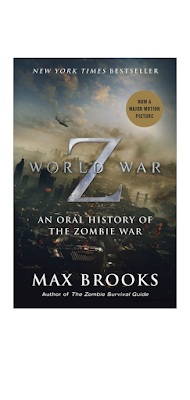Chapter 8 – Problems: Opportunities for Learning
Problems get better or worse based on what you do or don’t do when you face them.
Sometimes You Win Sometimes You Learn delves a bit into problem solving: interesting and useful, but less foundational when it comes to mindsets.
Chapter 9 – Bad Experiences: The Perspective for Learning
How we think when we lose determines how long it will be until we win.
If you are ambitious a danger for you is that you will quickly move past successes and focus on “what you should have done better”. Which way too often means you’re focusing on losses and building regret. But you can’t build on regrets. And the capacity to manage disappointment and loss is key in living a fulfilling life.
The next time you have a bad experience try this:
1. Accept Your Humanness. We will fail sometimes no matter how hard we try. Why? Because we’re human. And that’s what makes you special.
2. Learn to Laugh at Yourself and Life.How much easier would you problem appear if you were able to laugh at them?
3. Keep the Right Perspective. Seeing difficulties as experience is a matter of perspective:
Don’t Base Your Self-Worth on a Bad Experience You are not your worst moment and you are not defined by your performance.
Don’t Feel Sorry for Yourself You are allowed a 24h grace period of feeling sorry for yourself, then pick yourself up (or you might get stuck)
Do Consider Your Failures as a Process to Learn and Improve Look at it like scientists: when it didn’t work, they tested a hypothesis.
Don’t Base Your Self-Worth on a Bad Experience You are not your worst moment and you are not defined by your performance.
Don’t Feel Sorry for Yourself You are allowed a 24h grace period of feeling sorry for yourself, then pick yourself up (or you might get stuck)
Do Consider Your Failures as a Process to Learn and Improve Look at it like scientists: when it didn’t work, they tested a hypothesis.
4. Don’t Give Up If you want to succeed in life, you can’t give up. Og Mandino said “Your capacity for occasional blunders is inseparable from your capacity to reach your goals. No one wins them all, and your failures are just part of your growth. Shake off your blunders. How will you know your limits without an occasional failure”
Chapter 10 – Change : The Price of Learning
Some people put the minimum effort to distance themselves from their problems without going to the roots, which of course can often be found in themselves.
And of course they never grow and never solve those problems permanently.
And of course they never grow and never solve those problems permanently.
Entrepreneur Alan Cohen said, “To grow, you must be willing to let your present and future be totally unlike your past. Your history is not your destiny.”
Here are a few ways to make positive change:
1. Change Yourself. Quit looking at the environment or people as the issue. In life, if you want more, you must become more.
2. Change Your Attitude Your attitude is fully within your control. Sometimes You Win Sometimes You Learn is all about giving the right attitudes.
3. Change Your Nongrowing FriendsWise is the person who fortifies his life with the right friendships. And of course you have probably heard “you are the average of the five people you spend the most time with“.
4. Determine to Live Differently than Average People. The question “who am I” is important, but even more critical is “Who am I becoming?”. Keep an eye where you are and an eye where you want to be.
5. Unlearn What You Know to Learn What You Don’t Know. Before you input new more empowering thoughts in your brain, you have to let go of the ballast you picked up along the way.




